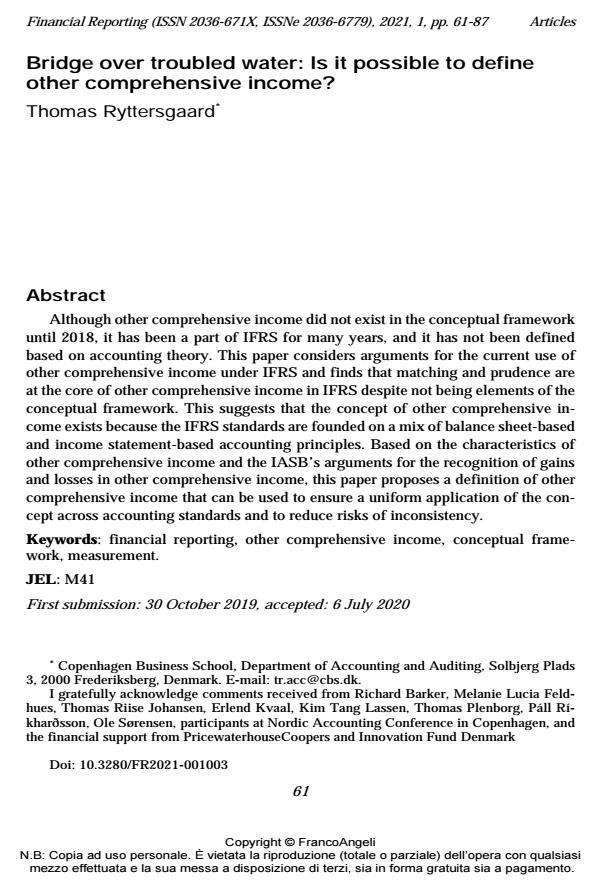Bridge over troubled water: Is it possible to define other comprehensive income?
Titolo Rivista FINANCIAL REPORTING
Autori/Curatori Thomas Ryttersgaard
Anno di pubblicazione 2021 Fascicolo 2021/1
Lingua Inglese Numero pagine 27 P. 61-87 Dimensione file 104 KB
DOI 10.3280/FR2021-001003
Il DOI è il codice a barre della proprietà intellettuale: per saperne di più
clicca qui
Qui sotto puoi vedere in anteprima la prima pagina di questo articolo.
Se questo articolo ti interessa, lo puoi acquistare (e scaricare in formato pdf) seguendo le facili indicazioni per acquistare il download credit. Acquista Download Credits per scaricare questo Articolo in formato PDF

FrancoAngeli è membro della Publishers International Linking Association, Inc (PILA), associazione indipendente e non profit per facilitare (attraverso i servizi tecnologici implementati da CrossRef.org) l’accesso degli studiosi ai contenuti digitali nelle pubblicazioni professionali e scientifiche.
Although other comprehensive income did not exist in the conceptual framework until 2018, it has been a part of IFRS for many years, and it has not been defined based on accounting theory. This paper considers arguments for the current use of other comprehensive income under IFRS and finds that matching and prudence are at the core of other comprehensive income in IFRS despite not being elements of the conceptual framework. This suggests that the concept of other comprehensive income exists because the IFRS standards are founded on a mix of balance sheet-based and income statement-based accounting principles. Based on the characteristics of other comprehensive income and the IASB’s arguments for the recognition of gains and losses in other comprehensive income, this paper proposes a definition of other comprehensive income that can be used to ensure a uniform application of the concept across accounting standards and to reduce risks of inconsistency.
Parole chiave:Financial reporting, other comprehensive income, conceptual framework, measurement
Jel codes:M41
Thomas Ryttersgaard, Bridge over troubled water: Is it possible to define other comprehensive income? in "FINANCIAL REPORTING" 1/2021, pp 61-87, DOI: 10.3280/FR2021-001003